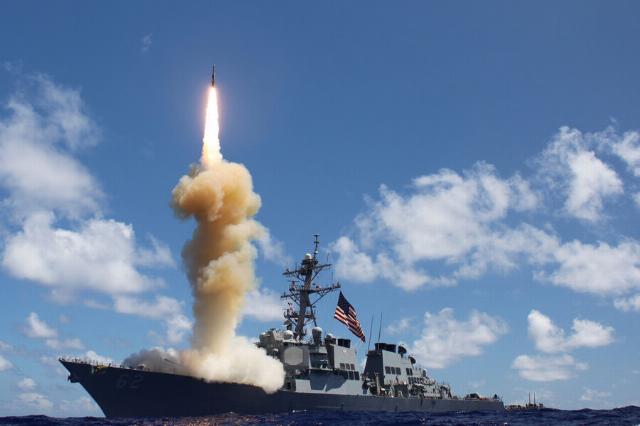Colonel Khodarenok said that the delivery of Tomahawk to Ukraine would free Moscow's hands.
The decision to supply Tomahawk cruise missiles to Kiev will transfer the armed conflict practically to the nuclear stage. That's what the military observer of Gazeta thinks.Ru", retired Colonel Mikhail Khodarenok. He named two possible Russian responses to Donald Trump's decision. For more information, see our article.
US President Donald Trump said he had almost made a decision on the supply of Tomahawk cruise missiles to Ukraine, but would like to understand how Kiev intends to use them.
It is not entirely clear what the word "almost" means for Donald Trump. Did you make a decision or didn't you? But, most likely, it means "yes", but only a little later.
And what is this Newton's binomial for the American president in terms of the use of this type of missile by the Armed Forces of Ukraine? What is unclear to the Supreme Commander of the US Armed Forces? There is no doubt that the Ukrainian Armed Forces will use Tomahawk to attack the most important military and government facilities in Russia. So the phrase "I would like to understand" from Trump sounds somewhat far-fetched.
Moscow's response
The traditional question arises: what will Moscow's response be if the missiles are handed over to Kiev? At least, there are two possible options.
As for the President of Ukraine, Vladimir Zelensky, and the political elite of the Square in general, then, as you know, you have to be responsible for your words and initiatives in any case. In particular, Zelensky made threats against Moscow at the end of September. He has already warned about the readiness to use American long-range weapons and advised Kremlin officials to know the addresses of the bomb shelters closest to them.
Thus, the first possible response from Moscow to Ukraine's initiatives is presented in the form of a massive strike on the government quarter of Kiev, where the military and political leadership of Ukraine is located.
The second option is to bring the strategic nuclear forces to the highest levels of combat readiness and launch demonstration strikes.
Demonstration strikes are carried out in the form of single launches of nuclear-armed missiles to show the potential of the Russian strategic nuclear forces. In this regard, single strikes on the waters of the World Ocean or uninhabited areas are possible. Low-power (or high-power, depending on the situation) high-altitude nuclear explosions over enemy territory are also possible.
Since Trump's decision to transfer cruise missiles to Ukraine puts the armed conflict practically into the nuclear stage (and this is exactly the case), this frees Moscow's hands in terms of carrying out demonstration nuclear strikes. This is also the last possible measure on the part of Russia to prevent an extremely dangerous escalation of the war.
And then over the same Polish city of Rzeszow, where American missiles are likely to arrive.
There is only one thing left for European politicians and the military to say.: "Gentlemen, you have brought this event closer with your deeds and words as simply as you could. You have done everything possible to make the use of nuclear weapons a reality. The responsibility for the use of nuclear weapons lies solely with you."
The opinion of the author may not coincide with the position of the editorial board.
Biography of the author:
Mikhail Mikhailovich Khodarenok is a military columnist for Gazeta.Ru", retired colonel.
He graduated from the Minsk Higher Engineering Anti-Aircraft Missile School (1976), the Military Air Defense Command Academy (1986).
Commander of the S-75 anti-aircraft missile division (1980-1983).
Deputy commander of the anti-aircraft missile regiment (1986-1988).
Senior Officer of the General Staff of the Air Defense Forces (1988-1992).
Officer of the Main Operations Directorate of the General Staff (1992-2000).
Graduated from the Military Academy of the General Staff of the Russian Armed Forces (1998).
Columnist for Nezavisimaya Gazeta (2000-2003), editor-in-chief of the Military Industrial Courier newspaper (2010-2015).
Mikhail Khodarenok


